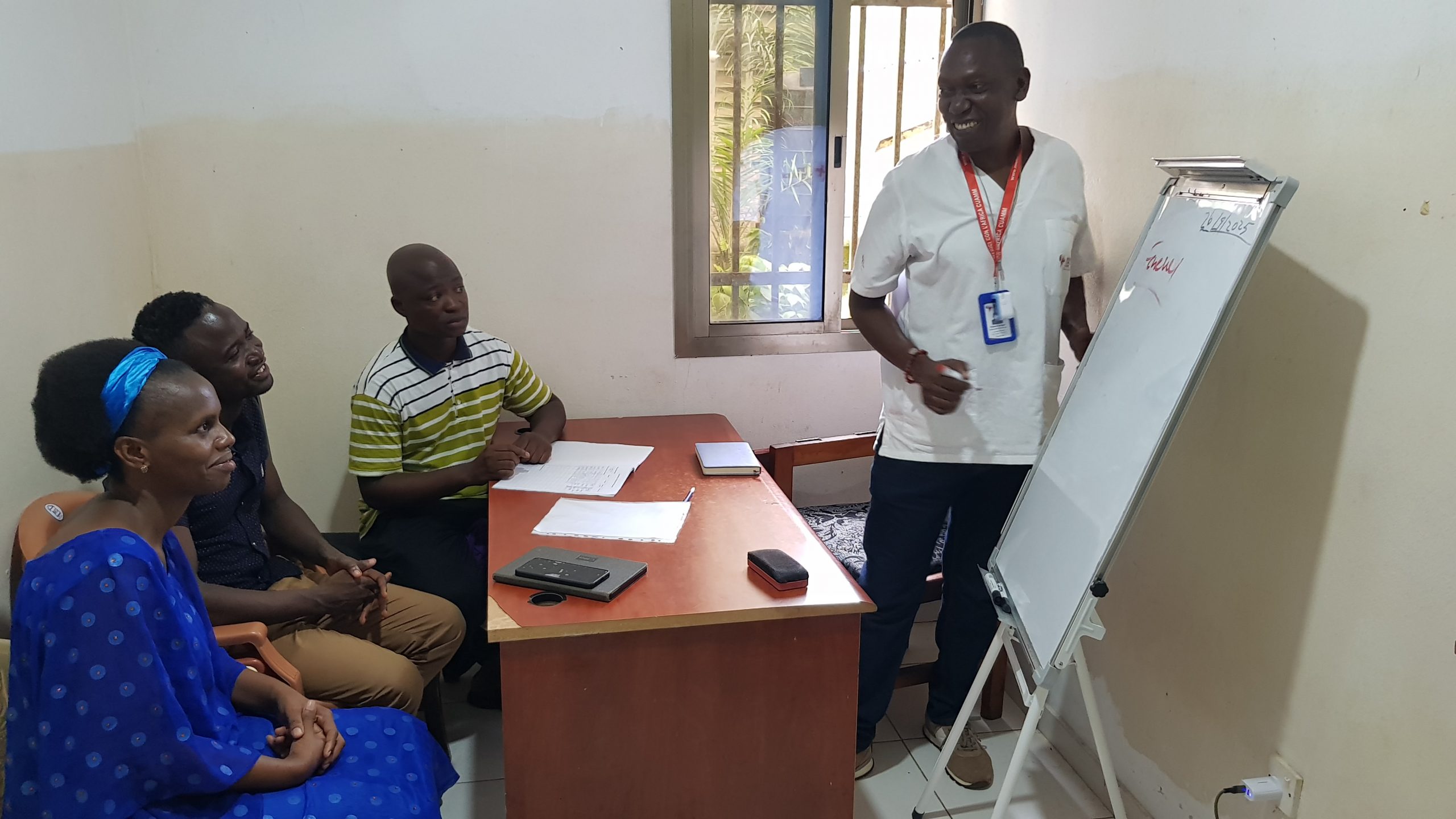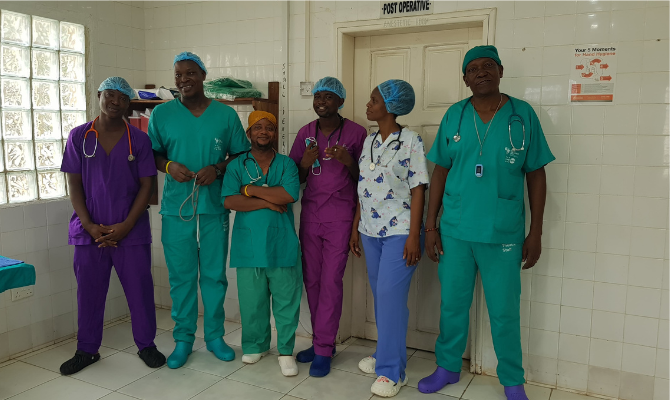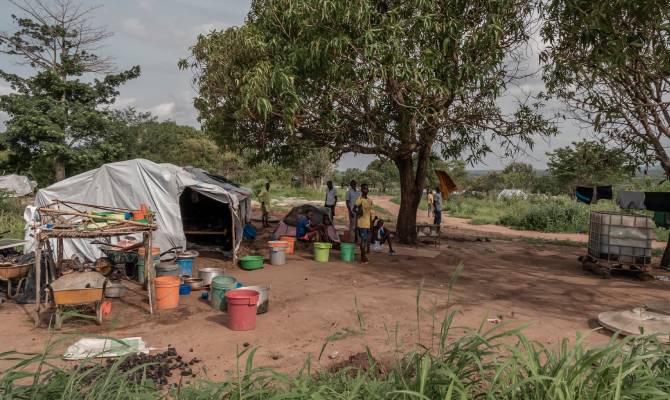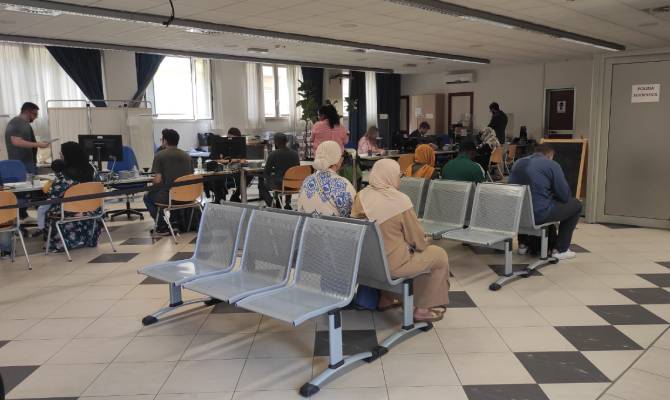3.7 is the average number of children per woman, 443 per 100,000 live births is the maternal mortality rate, approximately 4.3 doctors per 100,000 inhabitants, and 50 nurse anesthetists for a population of nearly 9 million people.
These figures alone tell the story of a very fragile socio-health situation in Sierra Leone, characterized by a severe shortage of qualified personnel and specialists, particularly in rural areas like Pujehun. It is in this context that an innovative training and mentorship program for student anesthetist nurses is being developed—the only one of its kind in the entire country.
“During our clinical placement at the Pujehun Maternal Hospital, we were assigned to the operating theatre for eleven weeks to gain practical experience in the field of anesthesiology,” begins Esther Kamara, one of the student nurses in the program. “Thanks to the guidance and supervision of Mr. Robert and Mr. Dhillon, we improved our skills in pre-operative, intra-operative, and post-operative patient management, learning to recognize and treat anesthesia complications. We deepened our knowledge of anesthetic drugs and their administration, as well as the correct functioning of equipment,” Esther continued.
In a context where pregnancies, often adolescent, are so high, along with obstetric complications, the role of anesthetists becomes even more essential and their training, a priority.
“All the trainees showed great commitment and dedication from the start, and the evaluation conducted at the beginning, middle, and end of the placement showed a marked improvement in their clinical skills, confidence, and competence. This made our supervision even more rewarding,” says Mr. Robert Ejangat, a Ugandan clinical anaesthetist officers who supports and trains the young professionals in this program. “I was very impressed because one of the trainees was motivated to enroll in the program after losing his pregnant sister. She needed an emergency procedure to deliver her baby, but unfortunately, upon arrival at the hospital, there was no anesthetist to assist her, and she ultimately lost her life. “Mothers shouldn’t die while bringing lives to bear” concluded Mr. Robert.

The program is a collaboration between the Ministry of Health of Sierra Leone, the Department of Anaesthesia and Resuscitation at the Sierra Leone University Hospital Complex at Connaught Hospital, along with Mercy Ships, through the “S.K.I.L.L.E.D” project—funded by the Italian Ministry of Foreign Affairs and International Cooperation (MAECI) through the Italian Agency for Development Cooperation (AICS) and implemented by CUAMM.
The training activities are successfully moving forward, providing great benefit to the Hospital and the community because the anesthesiology team has guaranteed full operating theatre coverage, ensuring the general successful outcome of procedures.
“The work environment was favorable, and the staff were available and collaborative. There was excellent teamwork,” stated Mohamed Mansaray, another trainee in the program. “We were encouraged to ask questions that allowed us to reflect on what we were doing, to develop critical thinking through clinical decisions. Constant feedback from the trainers spurred us to improve our technical skills, clinical judgment, and communication,” concluded Foday Mansaray.
Challenges, however, were not lacking. A better-equipped operating theatre would have allowed the trainees an even more enriching experience, enabling them to practice a wider range of procedures and gain greater familiarity with different anesthetic practices, such as pediatric as well as obstetric anesthesia. The shortage of resources inevitably impacts the quality of care: the operating table is quite old and has lost some functions, often vital for performing important maneuvers during intra-operative procedures; and there is little light in the theatre, guaranteed by only one small, old operating lamp.
Despite the limitations, the motivation, dedication to work, commitment, and investment in developing the potential and skills of these young professionals are excellent premises for the future, a future where Sierra Leone can rely on quality healthcare and qualified personnel.





